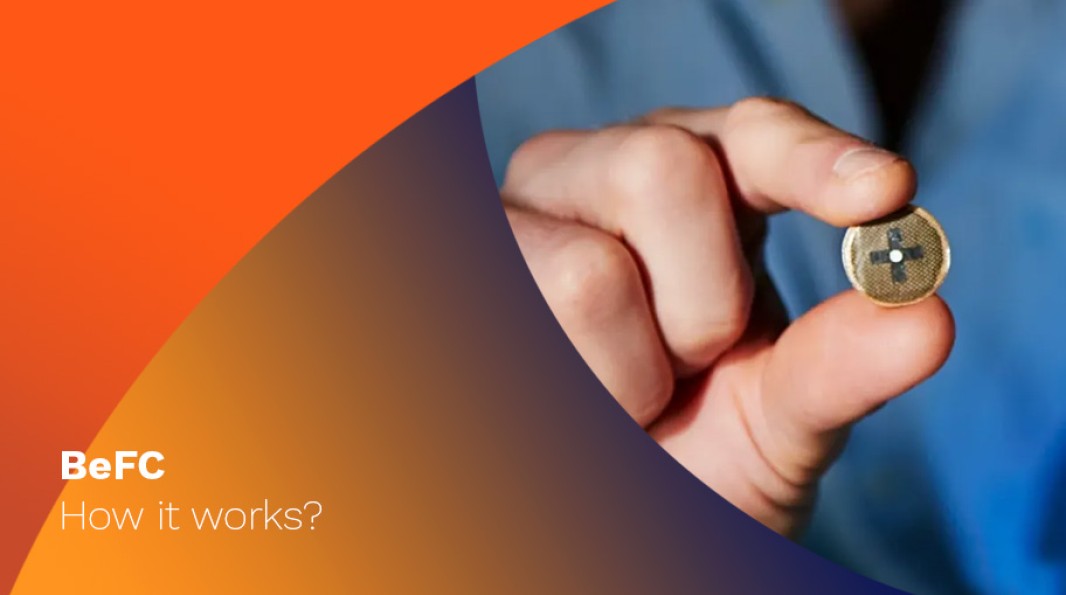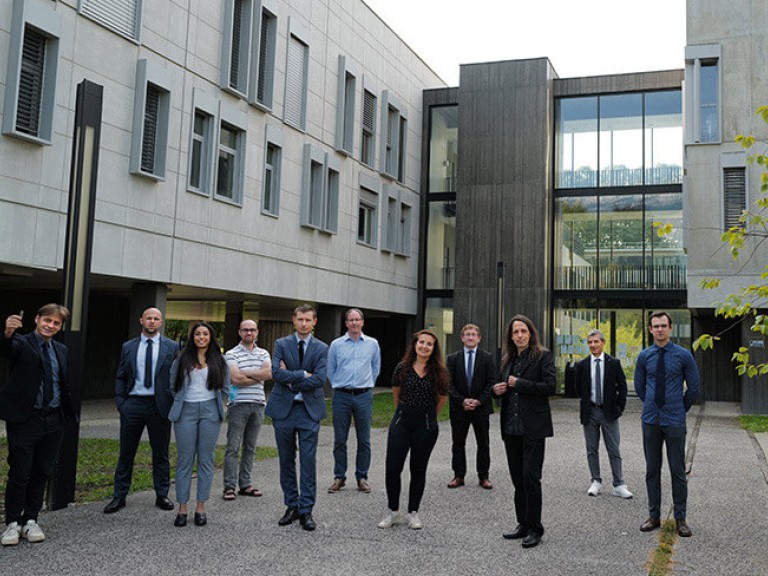-
FRANCE
Country of origin
-
2020
Creation date
-
8
Employees
-
€3 M
Fund raised
Batteries are now ubiquitous in our daily lives. And not just in our watches or TV remote. Batteries are also used to power small single-use electronic devices. So, for example, used digital pregnancy tests will ultimately end up in landfill. But take a moment to imagine an eco-friendly battery that contains no metal, is non-toxic and is made from paper. Still can’t quite visualise it?
BeFC has taken on this challenge. The young start-up has designed the battery of tomorrow to deliver clean energy for low-power disposable medical devices. So why not extend it to include the logistics industry? These recyclable miniature batteries are made from layers of cellulose, and use enzymes and biocatalysis to generate electricity. The sensors are activated by contact with droplets of water, sweat, saliva, blood or urine, and some of the devices that use them can already store data and connect to WiFi. The potential for use is enormous!
And this is what convinced the Grand Jury, who came to an agreement on awarding BeFC the 1st Jury prize and therefore crowning the project as the winner of the 2020 EDF Pulse start-up Awards.
Category: CO2 Neutral Territories

Your browser does not support javascript.
To enable you to access the information, we suggest you view the video in a new tab.

The team
BeFC is a CNRS (French National Centre for Scientific Research) spin-out start-up headed by Dr. Jules Hammond, with Rodolphe Durand-Maniclas, Dr. Jean-Francis Bloch and a highly experienced team of engineers and doctors of mechanical engineering, electronics and electrochemistry.
4 questions to BeFC
The original focus of the project was to manufacture fuel cells to power cardiac pacemakers and insulin pumps. But it was the idea of using paper that really made the difference, because this durable medium is compatible with countless types of connected devices. The rapid growth of portable electronic devices and the IoT (Internet of Things) is opening up new opportunities for us that extend beyond medical applications. In future, it will be possible to track packages in transit using this ultra-thin battery with its very low environmental impact. For that application, the fuel used would be oxygen and glucose... Developed out of decades of laboratory research, the six innovations that underpin our technology are now protected by patents.
We’re particularly proud of the €3 million in seed capital we have succeeded in raising with Demeter, BNP Paribas (WAI Venture Fund) and Supernova Invest. Our goal now is to scale up our product to industrial production volumes. We were also delighted to win the i-Lab innovation, and receive financial support from Bpifrance. That funding will allow us to extend our R&D projects to explore new applications for our technology.
Showcasing our technology at CES 2020 in Las Vegas was a powerful opportunity for us. This huge consumer electronics show introduced us to many industry experts and companies from all over the world, as well as investors, politicians, journalists and consumers. We’re very aware that such events are golden opportunities for a young start-up like ours. But we didn’t think for one moment that we’d actually be voted the best start-up of the French-language village at CES 2020. That came as a genuine surprise, and really fired us up as a team!
Our technology is revolutionary in terms of its composition. Based solely on paper and enzymes, it is natural, contains no metals or lithium, and poses zero risk of combustion. By reducing battery waste, we are simultaneously reducing the cost of recycling and disposal and minimising environmental impact. For end-user consumers, this eco-friendly battery with a lifetime of between one day and two months - depending on its power output - will cost no more than the conventional alternative. Thin and flexible, bioenzymatic batteries are also perfect for powering electronic devices and package tracking systems, which are becoming thinner and more connected all the time.
